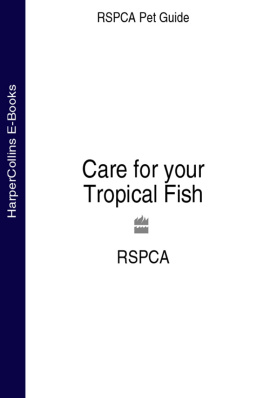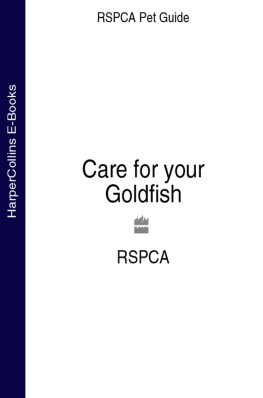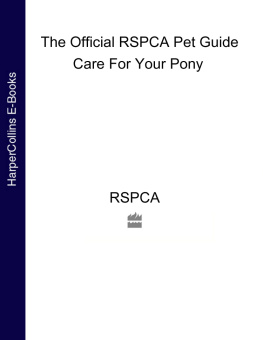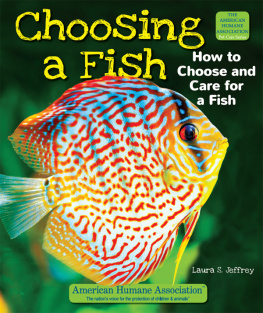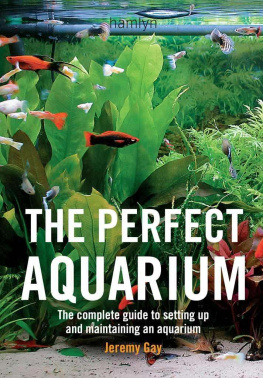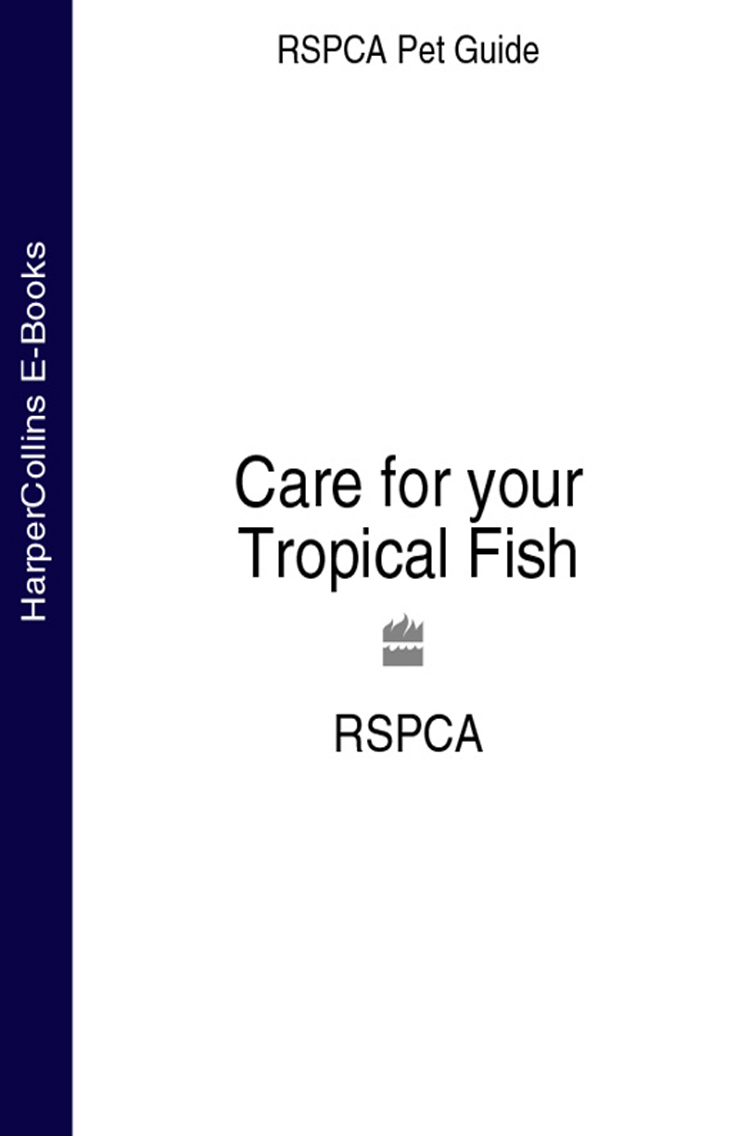
Care for your
Tropical Fish

Contents

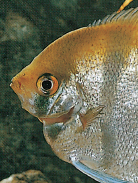
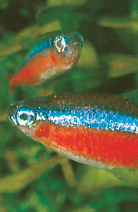
Owning tropical fish is great fun but a huge responsibility. All animals need a regular routine and lots of love and attention, but most importantly, pets need owners who are going to stay interested in them and committed to them all their lives.
Anyone who has ever enjoyed the company of a pet knows just how strong the bond can be. Children learn the meaning of loyalty, unselfishness and friendship by growing up with animals. Elderly or lonely people often depend on a pet for company and it has been proved that animals can help in the prevention of and recovery from physical or mental illness.
The decision to bring a pet into your home should always be discussed and agreed by everyone in the family. Bear in mind that parents are ultimately responsible for the health and well-being of the animal for the whole of its lifetime. If you are not prepared for the inevitable expense, time, patience and occasional frustration involved, then the RSPCA would much rather that you didnt have a pet.
Being responsible for a pet will completely change your life but if you make the decision to go ahead, think about offering a home to one of the thousands of animals in RSPCA animal centres throughout England and Wales. There are no animals more deserving of loving owners.
As for the care of your fish, this book should provide you with all the information you need to keep them happy and healthy for many years to come. Enjoy the experience!
Steve Cheetham MA, VetMB, MRCVS Chief Veterinary Officer, RSPCA

The first public aquarium in the world was opened in England in 1852, in the Zoological Gardens in Regents Park, London, and since then, keeping and breeding tropical fish has increased in popularity enormously. The wide range of species and colours make them fascinating to own and relaxing to watch as they glide silently through the plants in the home aquarium.
Tropical fish can be divided into two categories: freshwater and marine fish. This book is concerned only with freshwater tropical fish. The requirements for marine fish tend to be complex and demand considerable expertise, as well as more time, effort and money than the newcomer to fish keeping will wish to expend.
That said, keeping freshwater fish as pets still requires certain basic commitments on the part of the owner. Fish are living creatures and although they cannot show their feelings as demonstratively as cats or dogs, they still need to be well looked after if they are to thrive.
Many hundreds of brightly coloured tropical freshwater fish are readily available from aquarist shops. It is worth taking the time to investigate different species and to acquire a little basic knowledge in order to ensure a congenial and healthy environment for your fish which will make your aquarium a source of living interest and delight. You will come to appreciate their complex behaviour and how they interact.

The black and silver stripes of the Angelfish and Black Widow Tetras complement each other and provide a contrast to the bright colours of the Neon Tetras.

Photographs by Photomax UK
Tropical freshwater fish come from many different habitats around the world, which range from the fast-flowing mountain streams of China to the huge inland freshwater lakes of Africa, especially the Rift Valley.
Africa
Both Africa and South America have their fair share of three popular, often specialized, groups of fishes the cichlids, catfish and killifish.
Central and South America
Most live-bearing fish, such as Guppies, Swordtails, Platies and Mollies, are native to the Central Americas, where they are inhabitants of waterways which often receive some tidal waters. Colourful tetras are perennial aquarium favourites; the diminutive Neon and Cardinal Tetras are closely related to the Piranha and share its South American watercourses along with other aquarium favourites, the Angelfish and Corydoras Catfish.

The warm waters of South and Central America are home to a wide range of tropical fish which include the Angelfish, the Discus and a variety of cichlids.
Photography by Alamy (Robert Harding Picture Library Ltd)

A mouth breeding cichlid will incubate fertilized eggs in its mouth for about three weeks before releasing the young fry.
Photography by Alamy (Robert Harding Picture Library Ltd)
India and South-east Asia
The slow-moving rivers of India and South-east Asia are the home of Rasboras and Barbs, whilst the graceful Gouramis and the belligerent Siamese Fighting Fish are able to survive often oxygen-depleted waters by virtue of their auxilliary breathing organs.
Scales Externally, the body of the fish is covered with some small bony plates scales which are themselves covered with a delicate layer of skin (although this is usually too thin to be seen without a microscope) which enlarges the scales as the fish grows. On top of this is a layer of mucus with bactericidal properties. The scales can only protect the fish by growing. If the delicate skin is damaged, growth is affected, so the fishs well-being is put at risk. For this reason, extreme care must be taken when handling fish it is better not to handle them at all if possible. If too much mucus is removed by handling, bacteria can get into the skin and set up an infection; if too much skin is removed, the scales cannot grow; and if the scales cannot grow, the fish can lose body fluids or become infected and die.
Gills Most fish breathe by taking in water through the mouth, which then closes, the muscles squeezing the water out through the slits in the side of the throat. The bars between the slits are lined with delicate blood-filled filaments (gill filaments), which act like our lungs. They pick up oxygen from the water and remove the carbon dioxide from the fishs blood. The gills nestle below a large protective plate just behind the head, which is called the gill cover, or operculum.

